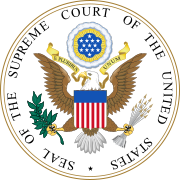The last two weeks of the presidential campaign are (at least to me) providing the most certain proof as to why Citizens United v FEC was correctly decided. In the end, it is intellectually, morally and constitutionally bankrupt to argue for a system of tiered speech. And pre-Citizens United, that is exactly what the law provided for.
As Justice Kennedy noted in his opinion for the majority,
The law before us is an outright ban, backed by criminal sanctions. [The law] makes it a felony for all corporations—including nonprofit
advocacy corporations—either to expressly advocate the election or
defeat of candidates or to broadcast electioneering communications
within 30 days of a primary election and 60 days of a general election.
Thus, the following acts would all be felonies under §441b: The Sierra
Club runs an ad, within the crucial phase of 60 days before the general
election, that exhorts the public to disapprove of a Congressman who
favors logging in national forests; the National Rifle Association
publishes a book urging the public to vote for the challenger because
the incumbent U. S. Senator supports a handgun ban; and the American
Civil Liberties Union creates a Web site telling the public to vote for a
Presidential candidate in light of that candidate’s defense of
free speech. These prohibitions are classic examples of censorship.
In essence, the great flaw of the pre- Citizens United law was that (as they did this week) The New York Times could write this and the Washington Post this, but other corporate entities were restricted from making their own political speech. The situation was intolerable.


No comments:
Post a Comment